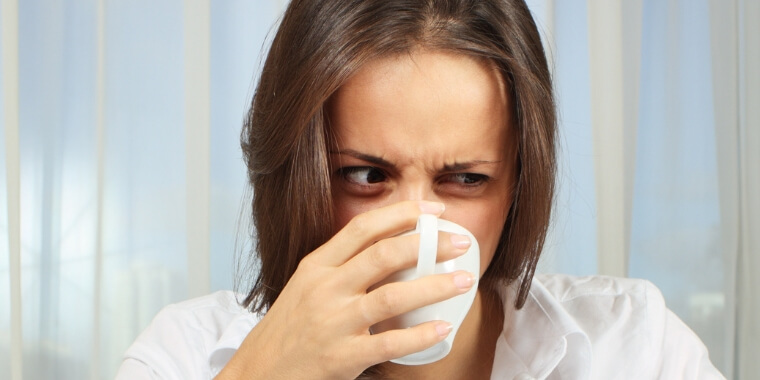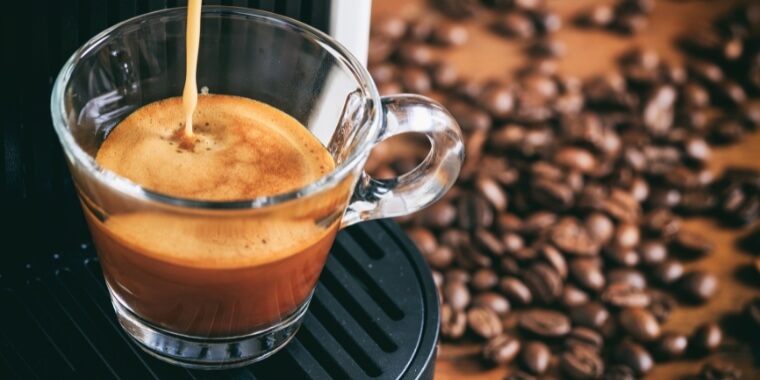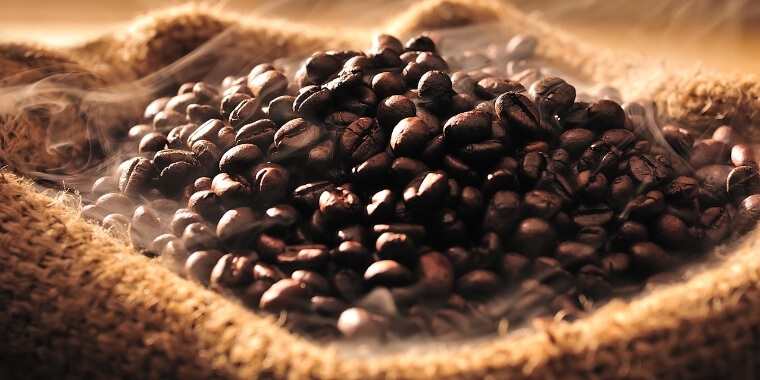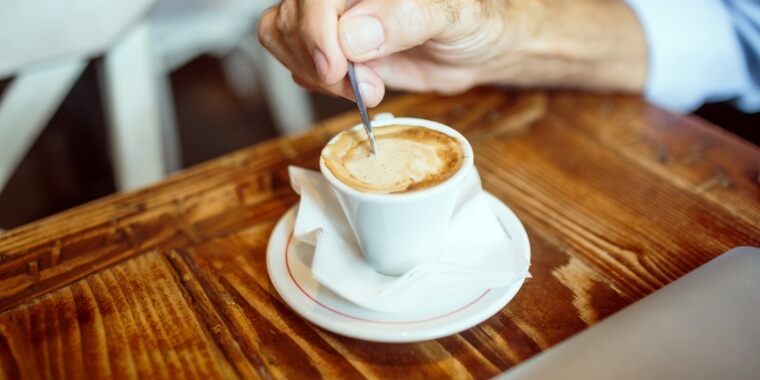Bitterness is a common problem that can ruin the taste of even the finest coffee beans.
In this article, I’ll explore what causes espresso to be bitter and offer tips on how to reduce it.
Understanding these factors is crucial to making a great espresso, and with a little know-how, you can enjoy a delicious and balanced cup every time.
So, let’s dive in and discover how to banish bitter espresso from your life!
What Does Bitter Espresso Mean?

According to the Cambridge Dictionary bitterness refers to a taste sensation that can be described as sharp and unpleasantly harsh.
Bitter espresso is often described as the taste of burnt or over-extracted coffee. When espresso is bitter, it can be difficult to appreciate the more nuanced flavors and aromas that are present in the coffee.
How Bitter Espresso Should Be?

In general, some level of bitterness is expected in espresso.
A well-made espresso shot should have a smooth, rich flavor with a slight bitterness that is not overpowering. It should be balanced by other flavors such as sweetness and acidity.
However, excessive bitterness can be a sign of over-extraction or other issues with the brewing process.
Let’s have a deeper look at the possible reasons for too bitter espresso.
What Causes Bitter Espresso

There are several factors that can contribute to bitterness in espresso. Here are some of the most important reasons:
- Over-extraction
- Low-quality coffee beans
- Water quality
- Incorrect brewing temperature
- Dirty Equipment
Let’s now go deeper into all those reasons
Factor 1: Over-extraction
The most common cause of bitterness in espresso is over-extraction.
Over-extraction can occur for several reasons.
- If the coffee is ground too finely, the water will take longer to pass through the coffee (there’s an interesting ebook from Borja Roman Corrochano that goes deep into details).
- If the espresso is brewed for too long, more of the coffee compounds will be extracted, leading to a bitter taste.
- Too much coffee is used. Using too much coffee relative to the amount of water can lead to over-extraction, as there is not enough water to properly extract the coffee compounds.
- The amount of pressure used during the brewing process. If too much pressure is applied, it can force too much water through the coffee, resulting in over-extraction and bitterness.
Factor 2: Low-quality coffee beans
Another factor that can contribute to bitterness in espresso is the use of low-quality coffee beans.
There are a number of reasons why low-quality beans can result in bitterness. For one thing, low-quality beans are often stale or have been poorly stored, which can cause them to lose flavor and develop unpleasant off-notes.
Think of it like buying fruits at the grocery store. If you buy a piece of fruit that’s old and bruised, it won’t taste as good as a fresh, ripe piece of fruit. The same thing can happen with coffee beans. If the beans are old, they can taste stale, and if they have defects, they can taste bitter.
Fix: It’s important to use fresh, high-quality coffee beans. This means buying beans that have been roasted recently (2-3 weeks ago) and have been stored properly to maintain their freshness.
Good quality beans will have a more complex and enjoyable flavor that will make your espresso taste better.
Factor 3: Water quality
The quality of the water used to make espresso is just as important as the quality of the coffee beans.
If the water quality is poor, it can affect the flavor of the espresso and make it taste bitter.
One common problem with water quality is hardness, which is caused by the presence of minerals such as calcium and magnesium. Hard water can affect the extraction process, leading to over-extraction and bitterness according to Kieran Lamond.
Soft water, on the other hand, can result in under-extraction and a lack of flavor.
Another factor to consider is the presence of impurities in the water. Chlorine, for example, can affect the flavor of the espresso and make it taste bitter. Similarly, water that has a high level of total dissolved solids (TDS) can also affect the flavor of the espresso.
Fix: To avoid bitterness caused by water quality issues, it’s important to use clean, filtered water that has the right balance of minerals. You can also test the water quality using a TDS meter to ensure that it’s within the recommended range for making espresso.
If you’d like to learn more about how water quality affects coffee taste I highly recommend the “The pros and cons of water treatment for a perfect cup of coffee” article by Cang Li
Factor 4: Incorrect brewing temperature
When we make coffee, we use hot water to extract the flavor and aroma from the coffee beans.
However, if the water is too hot, it can extract too much flavor and lead to over-extraction. This is because hot water can burn the coffee, making it taste bitter and unpleasant.
Think of it like cooking food on a stove. If you cook something at too high of heat, it can burn and become inedible. The same thing can happen with coffee if the water temperature is too high.
Fix: To avoid a bitter taste caused by high water temperatures, it’s important to use water that is at the right temperature for brewing espresso. This is usually around 199°F (93°C) according to Batali Mackenzie, which is hot enough to extract the flavor from the beans but not so hot that it will burn them.
Factor 5: Dirty equipment
The cleanliness of the equipment we use to make espresso is really important.
One common problem with dirty equipment is the buildup of coffee oils, which can accumulate on the group head, portafilter, and other parts of the espresso machine.
This buildup can affect the flavor of the espresso and make it taste bitter. Similarly, a dirty grinder can cause inconsistencies in the grind size, leading to over-extraction and bitterness.
Fix: To avoid bitterness caused by dirty equipment, it’s important to clean and maintain your espresso machine and grinder regularly. This includes wiping down the group head and portafilter after each use, backflushing the machine to remove coffee oils, and cleaning the grinder burrs to ensure a consistent grind.
If you were ever wondering why are your espresso shots bitter you have the answer now. Now let’s have a quick look at instant fixes for too bitter espressos.
How To Fix a Bitter Espresso Shot

If you are wondering why your coffee tastes bitter all of a sudden and need a quick fix here’s what you can do:
Fix 1: If you’re looking for an instant fix to make espresso less bitter, adding sugar or another sweetener can certainly help to mask the bitterness and make the coffee more palatable.
However, keep in mind that this is not a long-term solution and won’t actually fix the root cause of the bitterness.
Fix 2: Another quick fix that you can try is to add a small amount of hot water to your espresso, which can help to dilute the bitterness and reduce its intensity. This can be a good option if your espresso is just slightly bitter and you don’t want to waste the shot.
However, keep in mind that adding water can also affect the overall balance of the espresso, so it’s important to use only a small amount and to taste the coffee as you make adjustments.
Fix 3: Adding salt to bitter espresso is a common old barista trick that can help to counteract the bitterness to some extent. The idea behind adding salt is that it can help to block the bitter receptors on your tongue, making the coffee taste less bitter.
Fix 4: Ultimately, the best way to fix bitter espresso is to understand the factors that contribute to bitterness and to take steps to prevent it from happening in the first place. This includes all things that I’ve mentioned in the previous section.
Some Specific Questions You Asked
Why Is My Breville espresso bitter?
The most likely reason for your Breville espresso being bitter is the grinder setting. To address the issue of bitter Breville espresso, you can try to adjust the grind size to be slightly coarser and see if that improves the taste.
My final thoughts
If you’re a coffee lover, there’s nothing worse than taking a sip of your espresso only to find it’s bitter and unpleasant.
Now you know what causes espresso to be bitter and you can provide some quick fixes to make its taste more balanced when needed so hopefully, all the information listed in this article will change your espresso experience.

